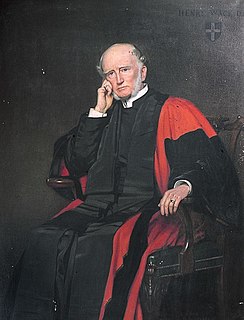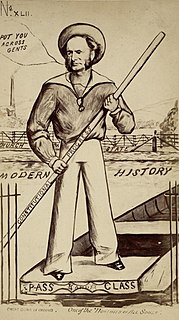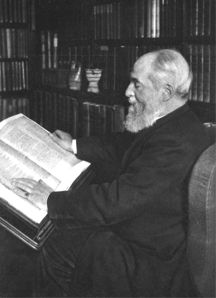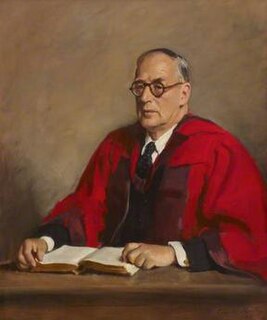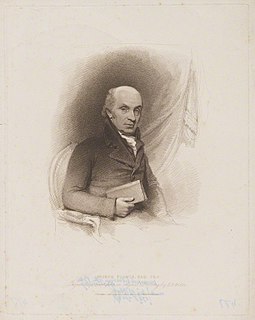This article includes a list of references, related reading or external links, but its sources remain unclear because it lacks inline citations .(February 2017) (Learn how and when to remove this template message) |
| Ronald Montagu Burrows | |
|---|---|
 | |
| Born | 16 August 1867 Rugby, Warwickshire, England |
| Died | 14 May 1920 London |
| Nationality | British |
| Alma mater | Christ Church, Oxford |
| Known for | Minoan civilization |
| Scientific career | |
| Fields | Archaeology |
| Institutions | Cardiff University University of Manchester King's College London |
Ronald Montagu Burrows (16 August 1867 – 14 May 1920) was a British academic archaeologist who served as Principal of King's College London from 1913 to 1920.

King's College London is a public research university located in London, United Kingdom, and a founding constituent college of the federal University of London. King's was established in 1829 by King George IV and Arthur Wellesley, 1st Duke of Wellington, when it received its first royal charter, and claims to be the fourth oldest university institution in England. In 1836, King's became one of the two founding colleges of the University of London. In the late 20th century, King's grew through a series of mergers, including with Queen Elizabeth College and Chelsea College of Science and Technology, the Institute of Psychiatry, the United Medical and Dental Schools of Guy's and St Thomas' Hospitals and the Florence Nightingale School of Nursing and Midwifery.
He was educated at Charterhouse School and Christ Church, Oxford. He was Professor of Greek at University College, Cardiff from 1898 until 1908, and at the University of Manchester from 1908 until 1913. In 1913 he became Principal of King's College London, a post he held until his death in 1920.

Charterhouse is an independent day and boarding school in Godalming, Surrey. Founded by Thomas Sutton in 1611 on the site of the old Carthusian monastery in Charterhouse Square, Smithfield, London, it educates over 800 pupils, aged 13 to 18 years, and is one of the original Great Nine English public schools. Today pupils are still referred to as Carthusians, and ex-pupils as Old Carthusians.

Christ Church is a constituent college of the University of Oxford in England. Christ Church is a joint foundation of the college and the Cathedral of the Oxford diocese, which serves as the college chapel and whose dean is ex officio the college head.

Cardiff University is a public research university in Cardiff, Wales. Founded in 1883 as the University College of South Wales and Monmouthshire, it became one of the founding colleges of the University of Wales in 1893, and in 1997 received its own degree-awarding powers. It merged with the University of Wales Institute of Science and Technology (UWIST) in 1988. The college adopted the public name of Cardiff University in 1999, and in 2005 this became its legal name, when it became an independent university awarding its own degrees. The third oldest university institution in Wales, it is composed of three colleges: Arts, Humanities and Social Sciences; Biomedical and Life Sciences; and Physical Sciences and Engineering.
Burrows was also a noted archaeologist who performed excavations in Greece at Pílos (ancient Pylos, on the Coryphasium promontory) and the nearby island of Sfaktiría. Much of this work helped to establish studies of the Minoan civilization. With Percy and Annie Ure, he undertook important excavations at Rhitsona in Boeotia, Greece.

Greece, officially the Hellenic Republic, historically also known as Hellas, is a country located in Southern and Southeast Europe, with a population of approximately 11 million as of 2016. Athens is the nation's capital and largest city, followed by Thessaloniki.
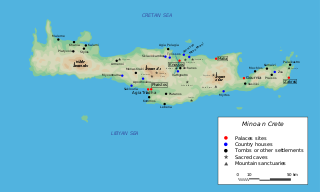
The Minoan civilization was a Bronze Age Aegean civilization on the island of Crete and other Aegean Islands which flourished from c. 2700 to c. 1450 BC, before a late period of decline, finally ending around 1100 BC. It preceded and was absorbed by the Mycenaean civilization of ancient Greece. The civilization was rediscovered at the beginning of the 20th century through the work of British archaeologist Arthur Evans. The name "Minoan" derives from the mythical King Minos and was coined by Evans, who identified the site at Knossos with the labyrinth and the Minotaur. The Minoan civilization has been described as the earliest of its kind in Europe, with historian Will Durant calling the Minoans "the first link in the European chain".
He was also instrumental in bringing Greece into World War I as a political and military ally of Britain.

